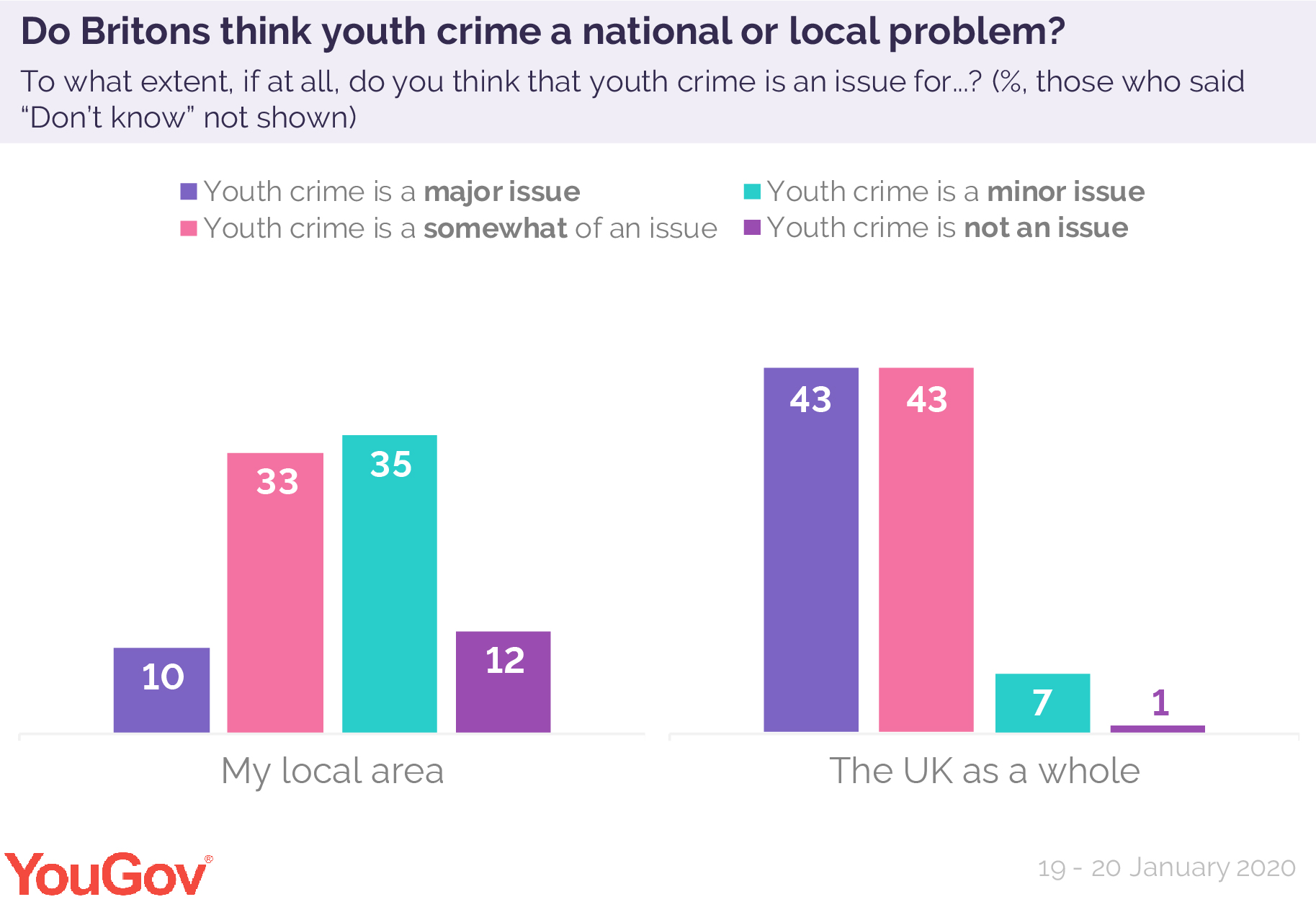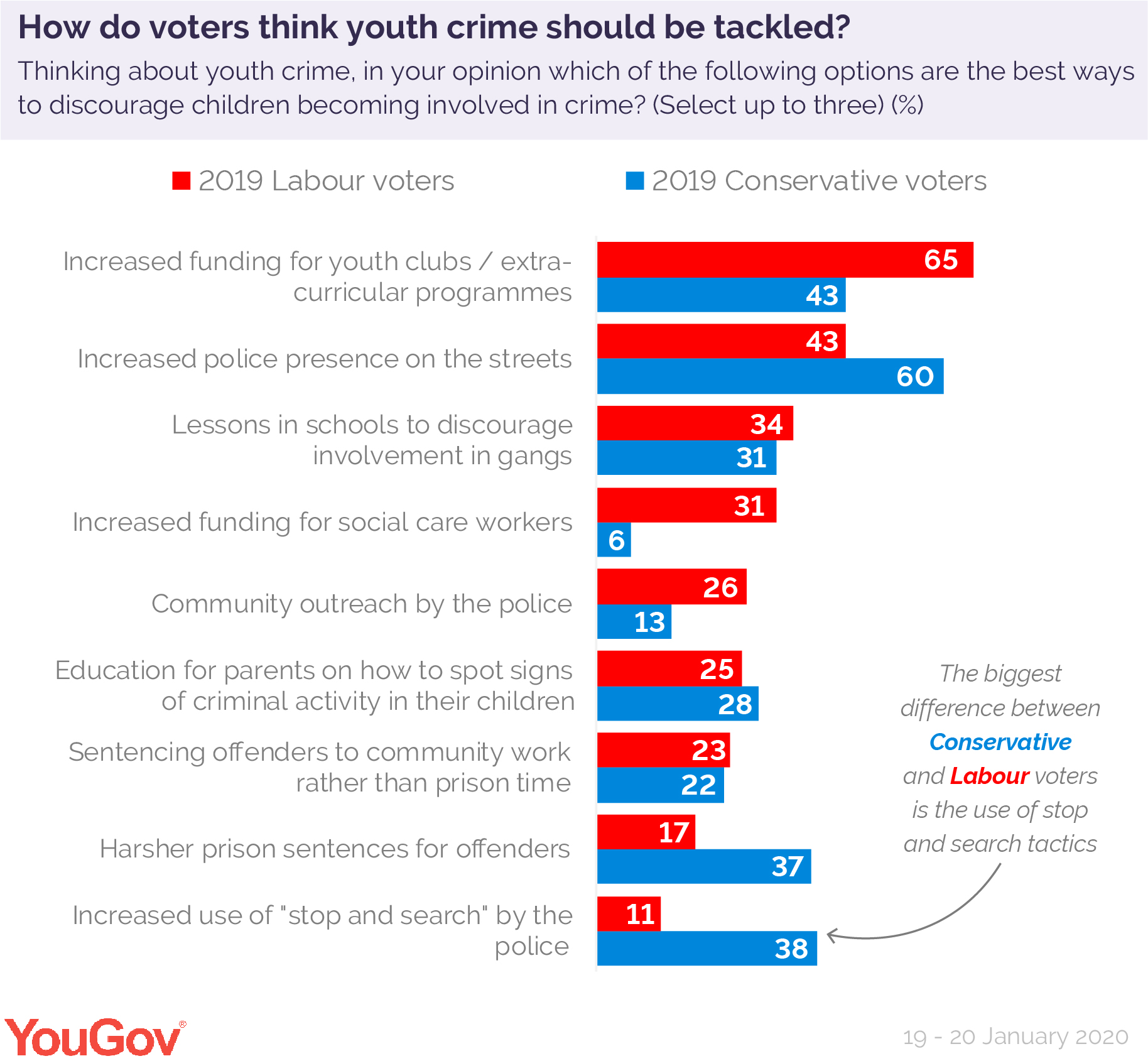Two in five say youth crime is a major issue in the UK, but the public favours increased funding for rehabilitation over jail time
With knife crime at an all-time high, London mayoral candidate Rory Stewart has promised to triple police numbers in the capital if elected, and Boris Johnson is launching a new task force to crack down on county lines gangs - but do Britons think more Bobbies on the beat is the best solution?
Is youth crime a national, local problem, or a London problem?
From a local perspective, the problem is concentrated in the capital – with Londoners twice as likely to say their area has a major issue with youth crime compared to the national average.
Six in ten (61%) Londoners say the capital has at least somewhat of a problem with young people and crime – with 23% saying it’s a major issue.
Outside the capital, 48% of Britons in the north of England say their local area has somewhat of a problem, but only 9% say it’s a major one, and further afield only 36% of Scots say their local area has somewhat of an issue. Just 3% say Scotland has a major issue with young people involved in crime.
However, looking at the national picture, Britons are much more likely to see youth crime as a major issue for the UK as a whole. Overall 86% of Brits think the UK as at least somewhat of a problem with youth crime, split down the middle with 43% ranking the issue as major.
Conservative voters are the most likely to see the country has having an issue with youth crime, with 51% saying it is a major issue compared to 38% of Labour voters and 31% of Liberal Democrats.
How do Britons think we should tackle youth crime?
Despite promises of more police on the streets by politicians - voters are split over the best way to tackle the issue.
Those who backed the Labour Party at the 2019 general election are more likely to in favour of preventative schemes and improving social care, with the most popular solution among labour voters being increasing funding for youth clubs and extra circular programmes – however, 43% still say that an increased police presence on the streets would be one of the most effective ways to discourage crime among youth.
This is compared to Conservative voters, who listed increased police officer numbers as their most effective solution at 60%. Conservative voters are also twice as likely to support longer custodial sentences for youth offenders (37%) compared to Labour voters (17%), and three times as likely to support increased use of the controversial “stop and search” tactics (38%) than Labour voters (11%).
Britons who say the issue of youth crime is a major issue for the UK are the most likely to be in favour of increasing police numbers - 60% compared to 49% of Britons overall - and upping the length of prison sentences for offenders – 42% compared to 29% of Britons overall.
Image: Getty


 Click to enlarge
Click to enlarge










